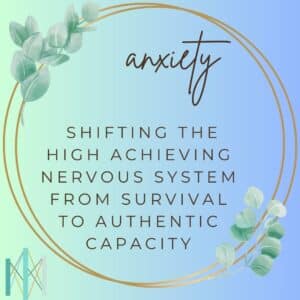
Shifting the High Achieving Nervous System from Survival to Authentic Capacity
At the Center for Mindful Psychotherapy, we frequently encounter a profound, often hidden struggle among our most accomplished clients. They arrive successful, driven, and outwardly capable, yet internally they are battling a persistent, debilitating sense of anxiety, exhaustion, or a feeling that they must constantly strive to justify their own existence. This state is not a moral failing or a...









